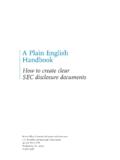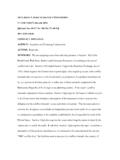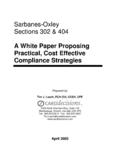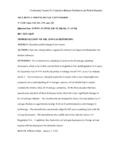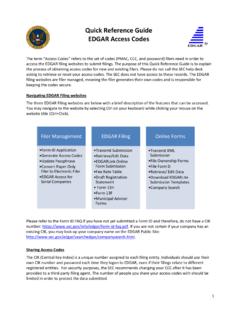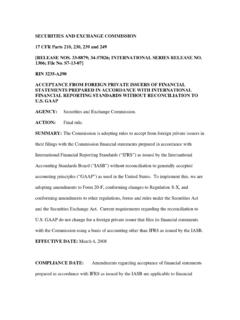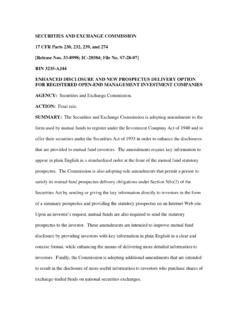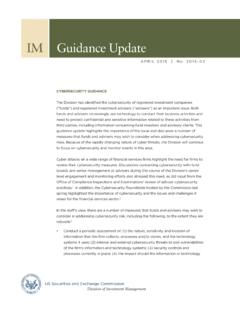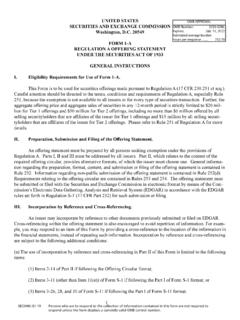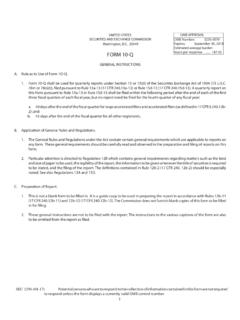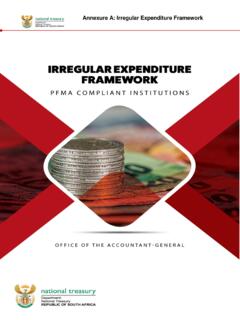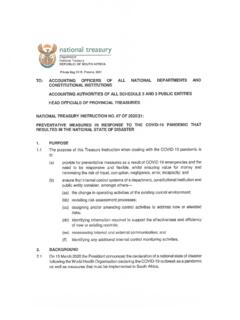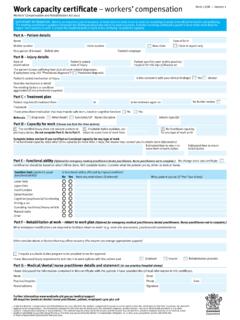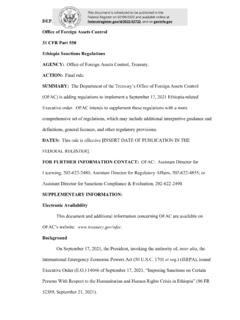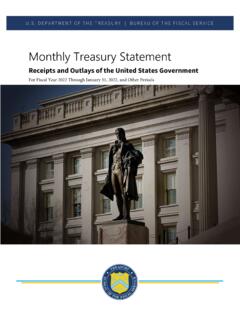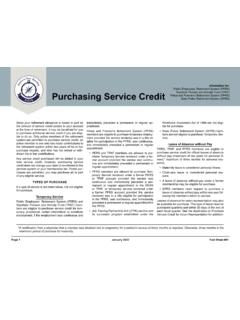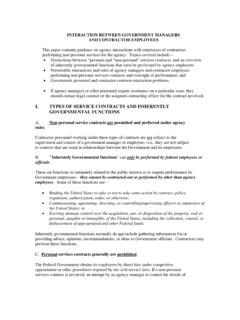Transcription of FACT SHEET Investor Protections in Communication Protocol ...
1 FACT SHEET Investor Protections in Communication Protocol Systems and ATSs SECURITIES AND EXCHANGE COMMISSION PAGE 1 OF 2 Why This Matters Trading systems that offer the use of non-firm trading interest and provide protocols to bring together buyers and sellers of securities ( Communication Protocol Systems) have evolved to function similarly to marketplaces operated by registered exchanges and ATSs and have become important venues for bringing together buyers and sellers for various types of securities. Because Communication Protocol Systems do not fall within the definition of exchange and are thus not required to register as exchanges, they are not required to comply with the same federal securities laws and regulations applicable to registered exchanges or ATSs. As a result, market participants who use these systems are not availed to the same Investor protection and fair and orderly market principles that apply to today s registered exchanges and ATSs.
2 This proposal is designed to address this regulatory gap and the current disparities that affect competitive balances among like marketplaces for securities. Despite the critical role of government securities in the and global economy, Regulation ATS has limited application to ATSs that trade government securities. This proposal would apply the Investor Protections and fair and orderly market principles of Regulation ATS to ATSs that trade government securities or repurchase and reverse repurchase agreements on government securities. The proposal would also apply the systems integrity provisions of Regulation SCI to certain ATSs that trade government securities. How This Rule Applies The proposed amendments would no longer exempt from Regulation ATS those ATSs that limit securities activities to government securities or repurchase agreements or reverse repurchase agreements on government securities and register as broker-dealers or are banks.
3 The proposed amendments also would include Communication Protocol Systems within the definition of exchange so that Communication Protocol Systems that choose to operate as ATSs would need to comply with the existing Regulation ATS provisions that protect investors and promote fair and orderly markets. The Securities and Exchange Commission proposed to: Expand Regulation ATS for alternative trading systems (ATS) that trade government securities, NMS stock, and other securities; Extend Regulation SCI to ATSs that trade government securities; and Amend the SEC rule regarding the definition of an exchange to address a regulatory gap. FACT SHEET | Investor Protections in Communication Protocol Systems and ATSs SECURITIES AND EXCHANGE COMMISSION Page 2 of 2 The proposed amendments would apply the Fair Access Rule to Government Securities ATSs that, during at least four of the preceding six calendar months, had: (1) for treasury Securities, three percent or more of the average weekly dollar volume traded in the , (2) for Agency securities, five percent or more of the average daily dollar volume traded in the The proposed amendments would also extend the requirements of Regulation SCI to Government Securities ATSs that during at least four of the preceding six calendar months had five percent or more of the average daily dollar volume traded in the for either treasury Securities or Agency securities.
4 What s Required For Communication Protocol Systems: Register as an exchange or operate under the ATS exemption, which includes registering as a broker-dealer, including becoming a member of a Self-Regulatory Organization, and complying with Regulation ATS. For Government Securities ATSs: File a public Form ATS-N through EDGAR that would disclose information about their manner of operations and the ATS-related activities of the registered broker-dealer or government securities broker or dealer that operates the ATS and its affiliates. For those currently operating pursuant to the exemption for certain government securities ATSs, comply with the other applicable provisions of Regulation ATS. For existing NMS Stock ATSs: File an amendment to their existing disclosures in accordance with a revised Form ATS-N, which includes questions about the ATS s interaction with related markets, liquidity providers, and activities the ATS undertakes to surveil and monitor its market.
5 Report changes to fee disclosures on Form ATS-N no later than the date they make a fee change. For ATSs that trade all types of securities: Modernize both Form ATS and ATS-R and electronically file them with the SEC through EDGAR. If subject to the Fair Access Rule, ensure that they meet the minimum requirements for the reasonable written standards for granting, limiting, and denying access to ATS services that must be established, and applied, and among other things, justify why each standard is fair and not unreasonably discriminatory. Additional Information: More information about the proposal and the full text of the proposed rules are available at The proposed rules also will be published in the Federal Register.
